Learning Analytics
What is Learning Analytics?
Learning Analytics allows faculty, departments, and institutions to collect, analyze and report out based on data about learners and their context for the purpose of understanding and optimizing learning and the environments in which it occurs. These data are focused on student success.
Learning analytics differs from academic analytics, which is a process of providing higher ed institutions with the data to support operational and financial decision making.
Joint statement of Association for Institutional Research, EDUCAUSE, and NACUBO (National Association of College and University Business Officers) encourages institutions to make a commitment to data analytics employing a collaborative responsible approach that balances effectiveness with maintaining student privacy.
Learning Analytics Maturity
Learning analytics can be divided into four stages where the information retrieved and questions asked of the information evolve over time.
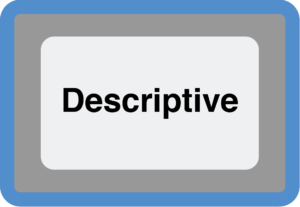 |
The descriptive stage addresses the “what is” questions. What are the retention rates? What are the graduation rates? | |
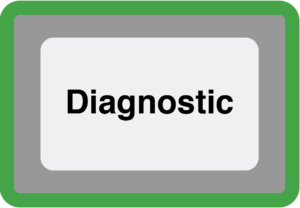 |
The diagnostic stage drills down to understanding “why”, perhaps by looking at particular student subgroups or relationships. | |
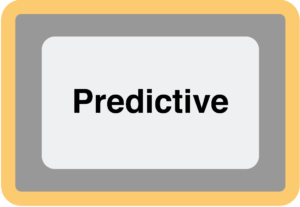 |
As analytics become more robust, the predictive stage can use historical variables as they relate to particular outcomes to all ow you to build predictive models of students at risk. | |
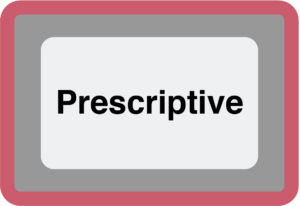 |
Finally, the prescriptive stage allows for the use of real-time data to guide student behaviors and choices in a give course, in line with adaptive learning. |
Learning Analytics at UMaine
With the addition of Navigate and UMaine’s learning management system, the University is positioned to start thinking meaningfully about the use of learning data to support student success.
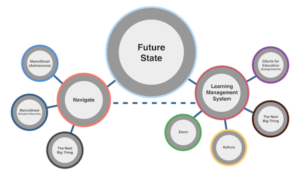
Learning Analytics Working Group
Debra Allen – Office of Institutional Research and Assessment
Amanda Barrington – Office of Institutional Research and Assessment
Mark Brewer – Faculty, Political Science
Christopher Dufour – Faculty, Computing and Information Science
Mark Haggerty – Faculty, Honors College
Sara Lindsay – Faculty, Marine Science
Shannon McCoy – Faculty, Psychology
Laura Millay – Maine Center for Research in STEM Education
Mohamad Musavi – Faculty, Engineering
Karen Pelletreau – Center for Innovation in Teaching and Learning
Penny Rheingans – Faculty, Computing and Information Science
Peter Schilling – Center for Innovation in Teaching and Learning
MacKenzie Stetzer – Faculty, Physics
Ryan Weatherbee – Office of Institutional Research and Assessment
Todd Zoroya – Faculty, Mathematics and Statistics
